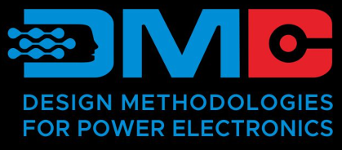

Speakers: Yue Cao and Jana Doppa
Date: April 29th 2021 at 1:30pm ET
Abstract: This talk presents an automated design and optimization framework enabled by machine learning (ML) for electric transportation power systems. As these systems become increasingly complex and involve the co-design of multiple inter-dependent subsystems and components, a large amount of engineering time and effort is required to explore all possible designs due to large design spaces. Multi-physical domain models and simulations, essential to measure a given design’s performance, are typically computationally expensive to run – sometimes taking hours to days, depending on the system complexity.
Providing an approach to drastically simplify this process – as in time and cost reduction – will allow faster and cheaper research and development throughout the transportation sector. Synergistic integration of advances in machine learning with physical domain knowledge paves one feasible pathway to practically realize this vision. Bayesian optimization (BO) is an effective machine learning framework to solve design automation problems with expensive experiments.
This talk proposes a novel BO algorithm referred to as Max-value Entropy Search for Multi-objective Optimization with Constraints (MESMOC) to solve multi-objective optimization (MOO) problems with black-box constraints that can only be evaluated through design simulations. The key idea is to build statistical models of both design objectives and constraints, and use them to intelligently select the sequence of designs for evaluation based on the principle of output space entropy search – maximize the information gain about the optimal Pareto front – to efficiently uncover (approximate) Pareto optimal designs. MESMOC is capable of drastically reducing the number of design simulations to discover a high-quality Pareto front.
A heavy-duty vertical-takeoff-landing (VTOL) unmanned aerial vehicle (UAV) power system is selected to demonstrate the effectiveness of the ML-based MESMOC algorithm. In several experimental trials, the ML algorithm uncovered the entire optimal Pareto front while only exploring ~4% of the design space. The proposed ML algorithm, when compared to a popular genetic algorithm, showcases superior performance.
Bios:
Yue Cao is an Assistant Professor in the Energy Systems Group at Oregon State University (OSU). Before joining OSU, he was a research scientist on the propulsions team at Amazon Prime Air in Seattle, WA. He has been a power electronics engineer intern with special projects group at Apple Inc., Cupertino, CA; Halliburton Company, Houston, TX; Flanders Electric, Evansville, IN; and Oak Ridge National Laboratory, TN. His research interests include power electronics, motor drives, and energy storage with applications in transportation electrification and renewable energy integration.
Dr. Cao received M.S. (2013) and Ph.D. (2017) in Electrical Engineering from the University of Illinois at Urbana–Champaign (UIUC), and B.S. (2011) in electrical engineering and mathematics from the University of Tennessee, Knoxville. He received the Myron Zucker award from the IEEE Industry Applications Society (IAS) in 2010. He was a Sundaram Seshu Fellow at UIUC in 2016, where he was a James M. Henderson Fellow in 2012. He is a recipient of Oregon State Learning Innovation Award for transformative education in 2020.
Dr. Cao is the Tutorials Chair of ECCE 2021, and he was a Local and Industry co-Chair of ECCE 2018. He was a Panel Chair on More Electric Aircraft at ITEC 2019. He was the Corresponding Technical Programs Chair of 2016 IEEE Power and Energy Conference at Illinois (PECI). In 2020, he established a joint IEEE PES/PELS Chapter at OSU. He is currently an Associate Editor for IEEE Transactions on Transportation Electrification.
Jana Doppa is a George and Joan Berry Chair Associate Professor in the School of Electrical Engineering and Computer Science at Washington State University (WSU), Pullman. He earned his PhD with the Artificial Intelligence group at Oregon State University (2014); and his M.Tech from Indian Institute of Technology (IIT), Kanpur, India (2006). His general research interests are in the broad field of Artificial Intelligence (AI), where he focuses on machine learning, and data-driven science and engineering for application domains including electronic design automation, computer architecture, material science, and agriculture.
Dr. Doppa received the NSF CAREER Award (2019), an Outstanding Paper Award at the AAAI conference (2013), a Google Faculty Research Award (2015), the Outstanding Innovation in Technology Award from Oregon State University (2015), a Best Student Paper Award Finalist at the ICAPS conference (2017), an Outstanding Reviewer Award out of ~3250 reviewers at the NIPS conference (2018), and a Best Paper Award Finalist at the DATE conference (2020). His PhD dissertation entitled “Integrating Learning and Search for Structured Prediction’’ was nominated for the ACM Doctoral Dissertation Award (2015). He received the Reid-Miller Teaching Excellence Award (2018) and Outstanding Junior Faculty Research Award (2020) from the Voiland College of Engineering and Architecture at WSU.
Dr. Doppa is an elected editorial board member of the Journal of Artificial Intelligence Research. He regularly serves as Area Chair and (Senior) Program Committee of top-tier conferences including AAAI, IJCAI, ICML, NeurIPS, ICLR, and KDD. He has presented invited tutorials on structured prediction at IJCAI (2016) and AAAI (2018) conferences; and gave invited talks on the topic of machine learning for electronic design automation at conferences including Embedded Systems Week (2017, 2019), VLSI Design (2018), ICCAD (2018), and DATE (2019, 2020).
